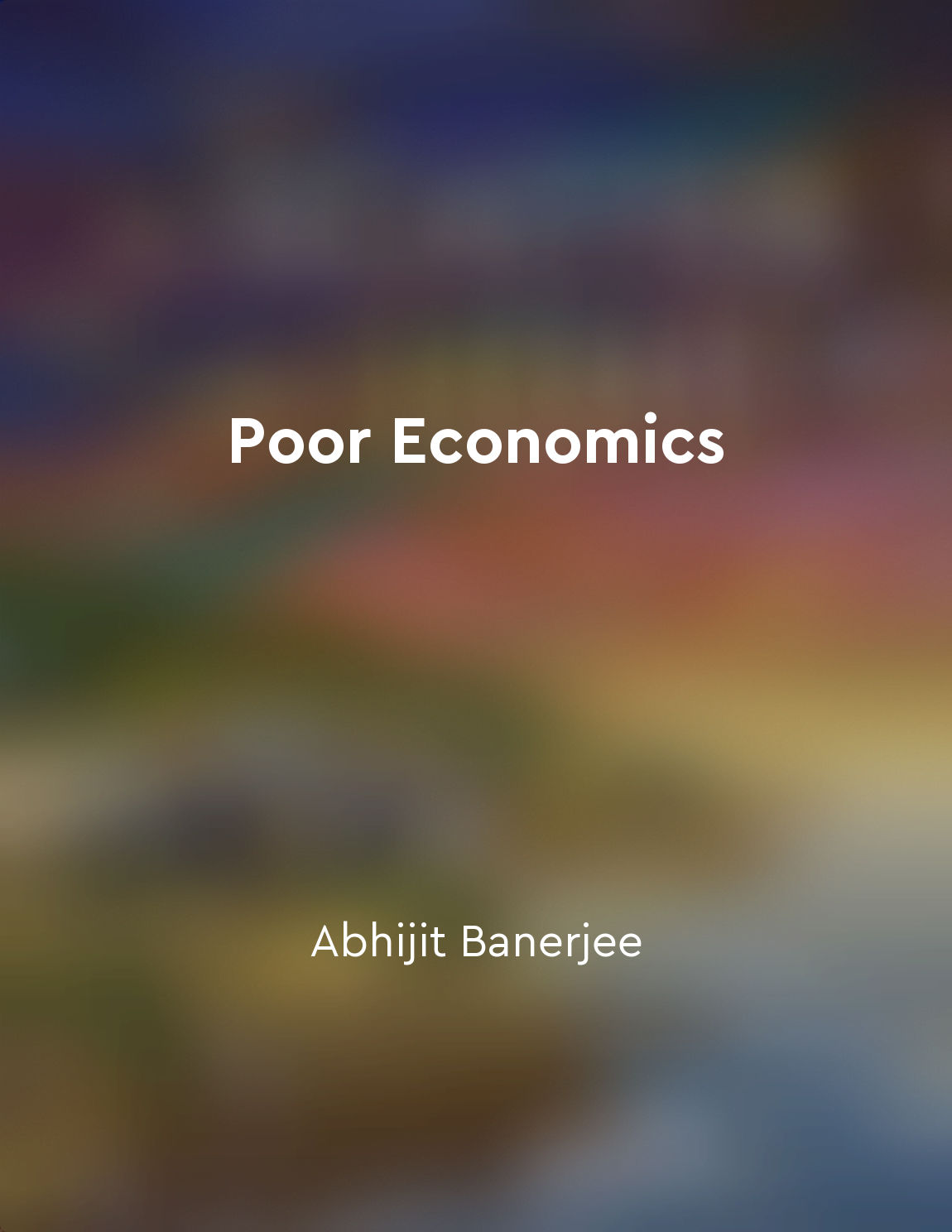Poor people make rational decisions based on their circumstances from "summary" of Poor Economics by Abhijit Banerjee,Esther Duflo
The idea that poor people make rational decisions based on their circumstances may seem counterintuitive to many. It goes against the common belief that poverty is a result of poor decision-making or laziness. However, when we take a closer look at the daily lives of the poor, we begin to understand why they make the choices they do. Living in poverty means facing a constant struggle to meet basic needs such as food, shelter, and healthcare. With limited resources and a lack of financial stability, the poor must carefully consider every decision they make in order to survive. This often leads them to prioritize immediate needs over long-term goals, as they simply cannot afford to think too far ahead. For example, a poor farmer may choose to sell his harvest at a lower price than he could get later in the season because he needs the money to feed his family that day. While this decision may seem shortsighted to an outsider, it is a rational choice given the farmer's circumstances. He must weigh the risks of waiting for a better price against the immediate need to put food on the table. Furthermore, the poor often face limited options and lack access to information that could help them make more informed decisions. For instance, a woman living in a slum may not have access to proper healthcare facilities or education about family planning. As a result, she may have more children than she can afford to support, perpetuating the cycle of poverty. In addition, the poor are often vulnerable to external shocks such as natural disasters, crop failures, or illness. These unforeseen events can push them further into poverty and force them to make difficult decisions in order to survive. For example, a family may be forced to sell their belongings or take on high-interest loans just to make ends meet after a disaster strikes.- It is important to recognize that the decisions made by the poor are not irrational or irresponsible, but rather a result of their challenging circumstances. By understanding the constraints they face and the trade-offs they must make on a daily basis, we can begin to see that poverty is not simply a matter of poor choices, but a complex web of social, economic, and environmental factors that must be addressed in order to truly make a difference in the lives of the poor.


